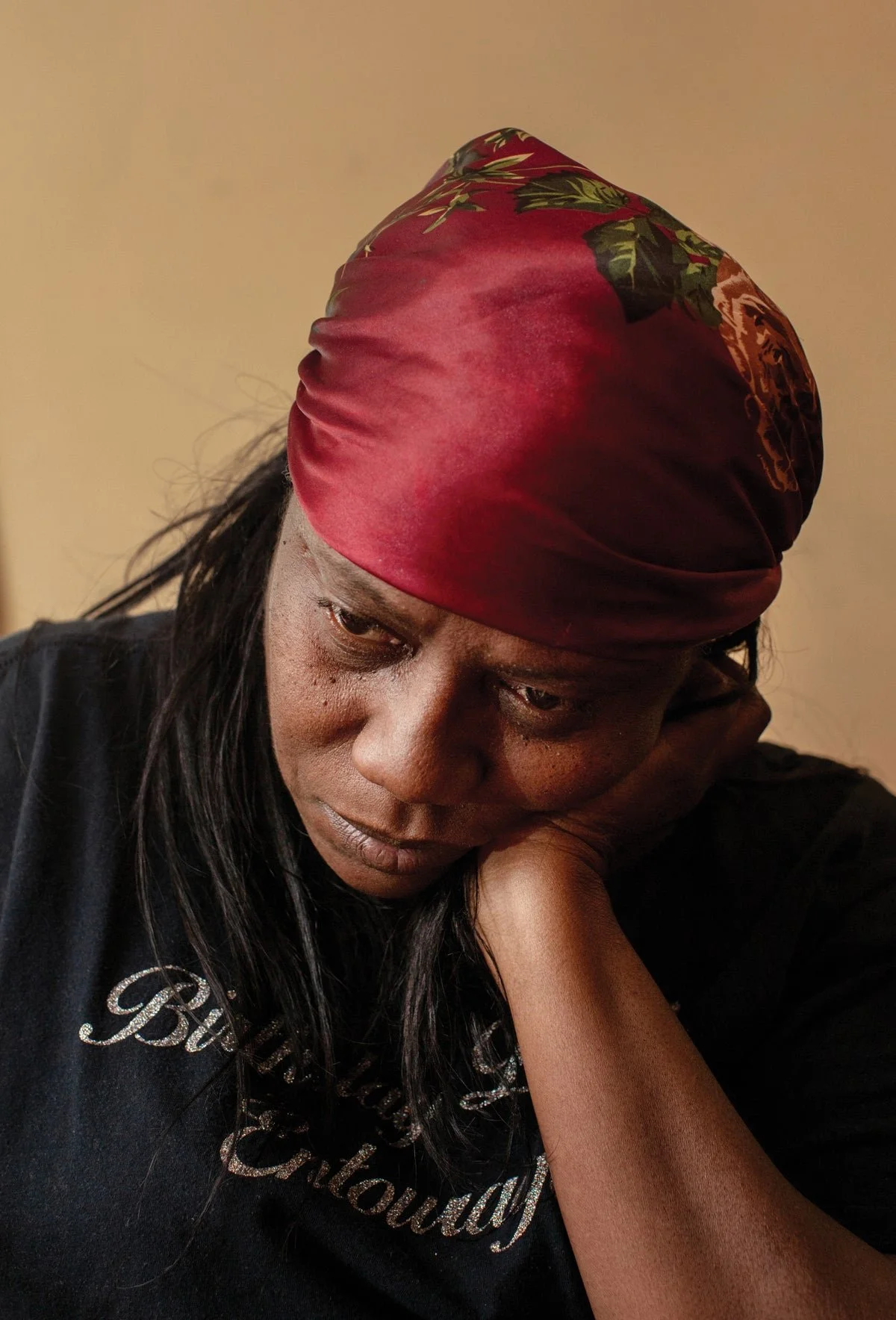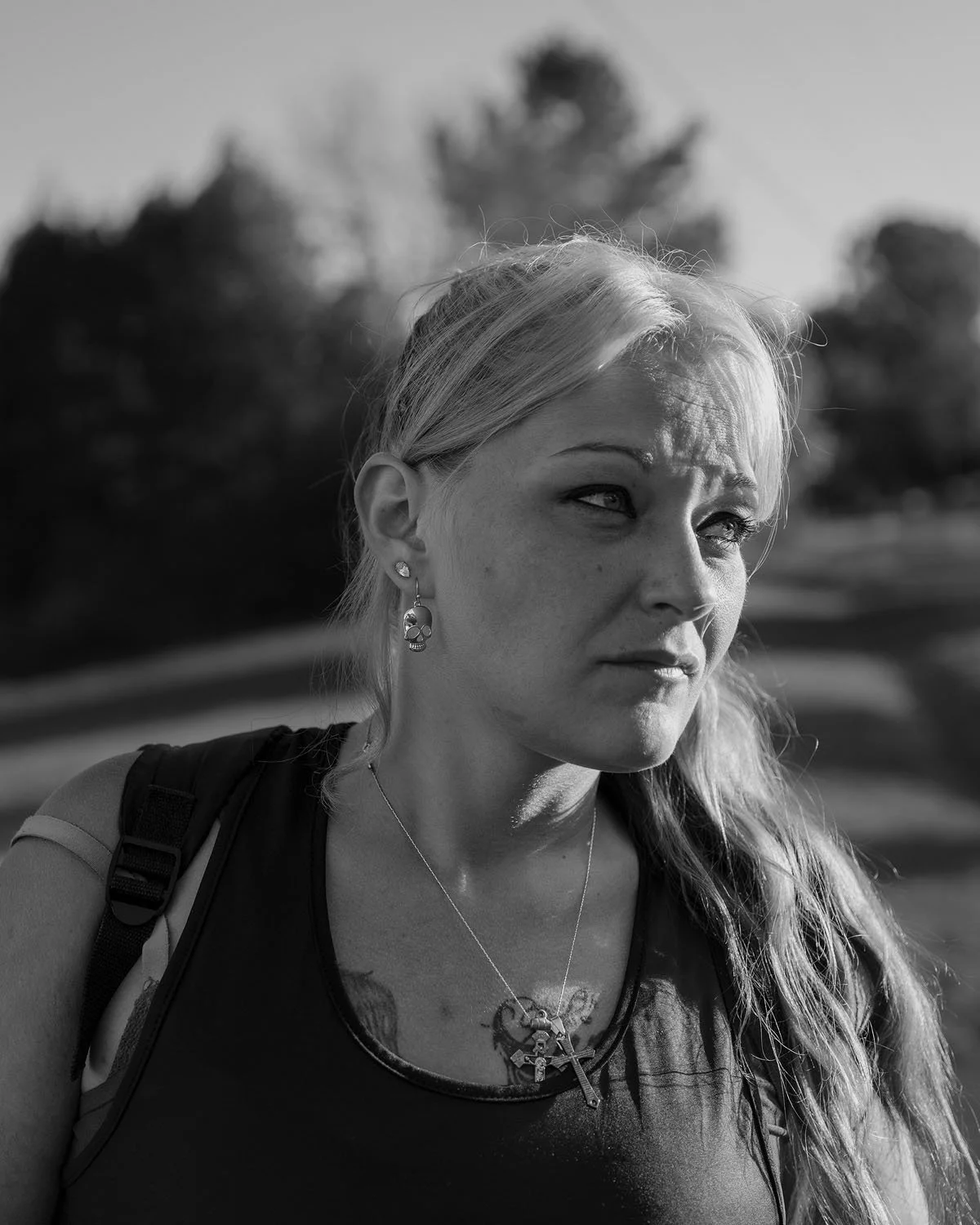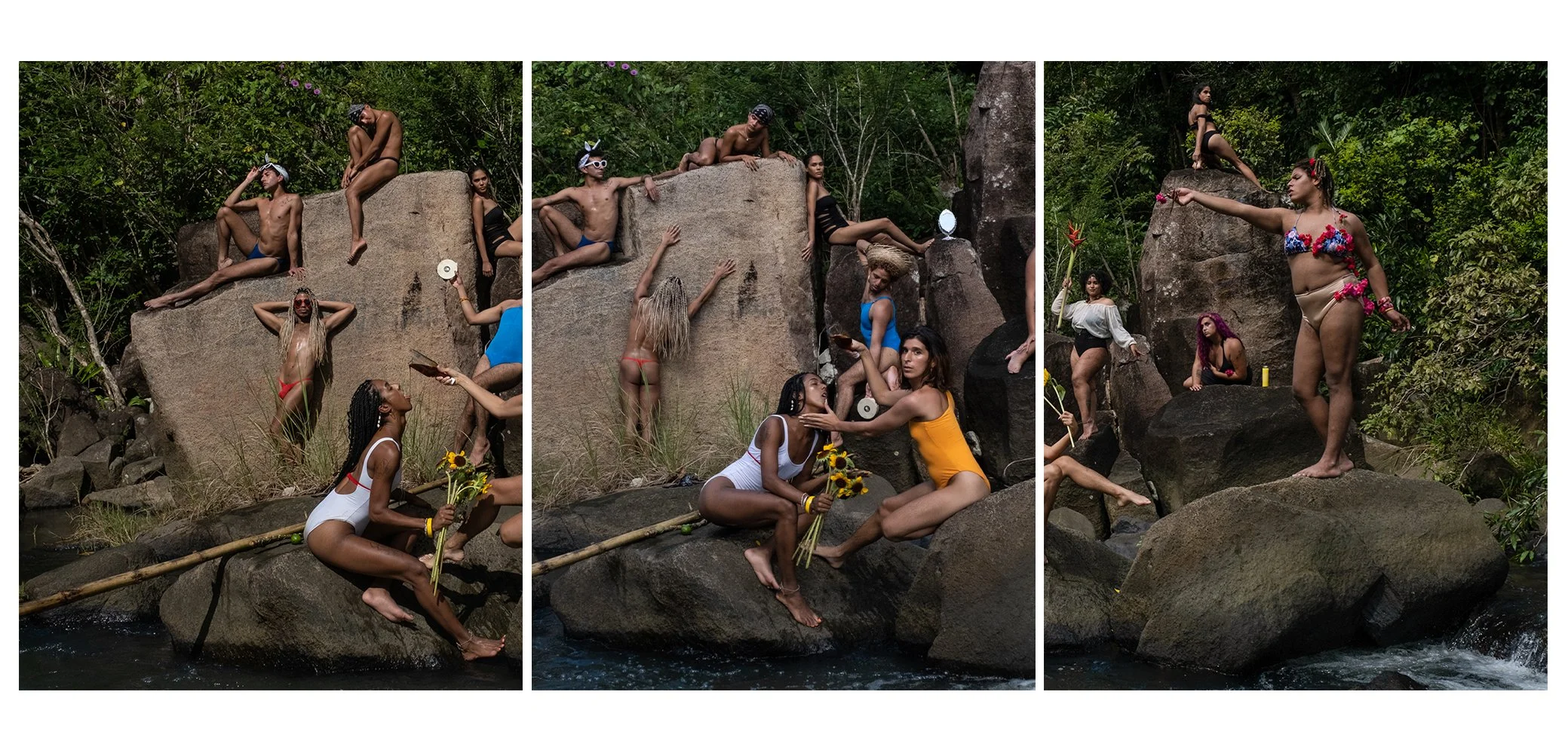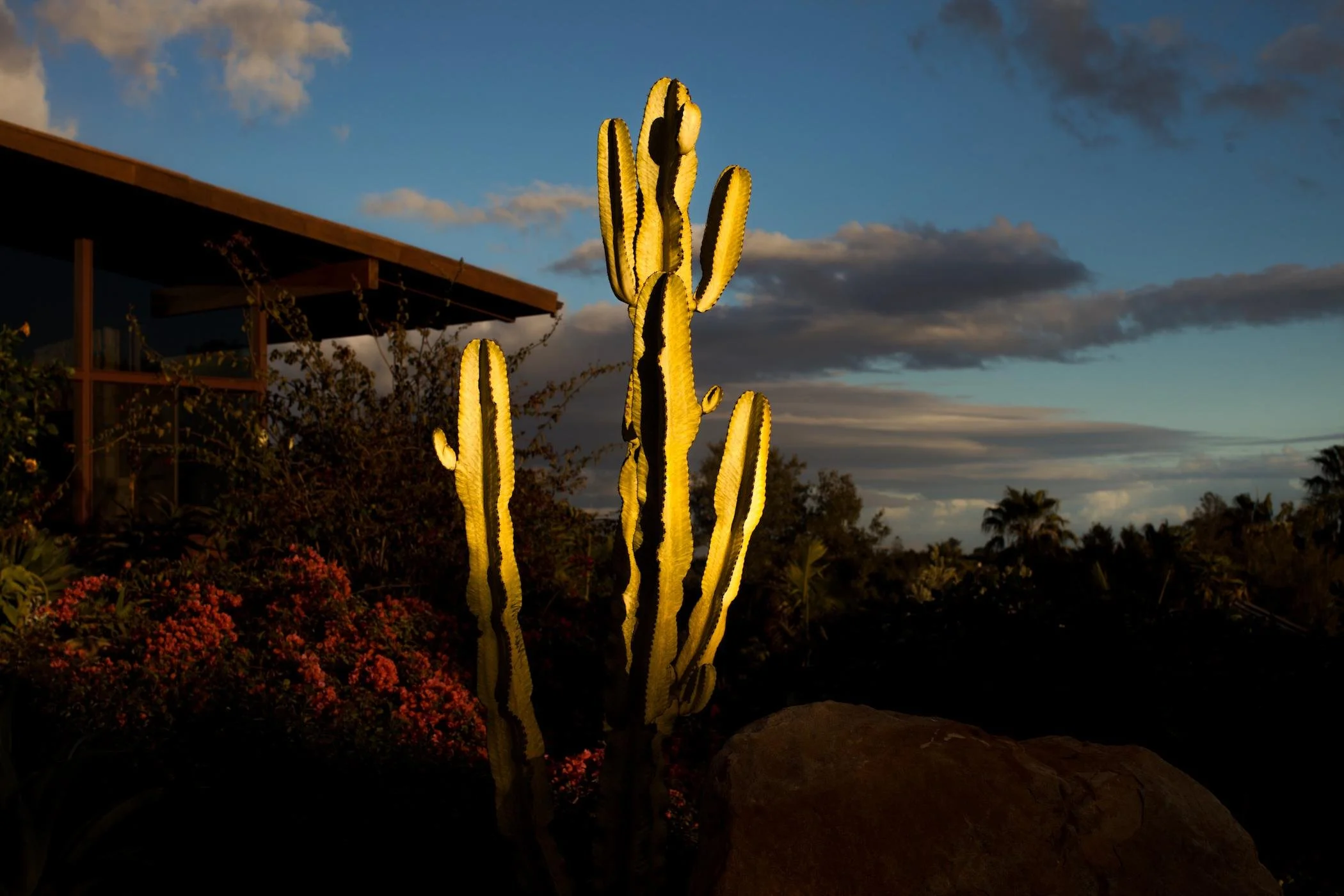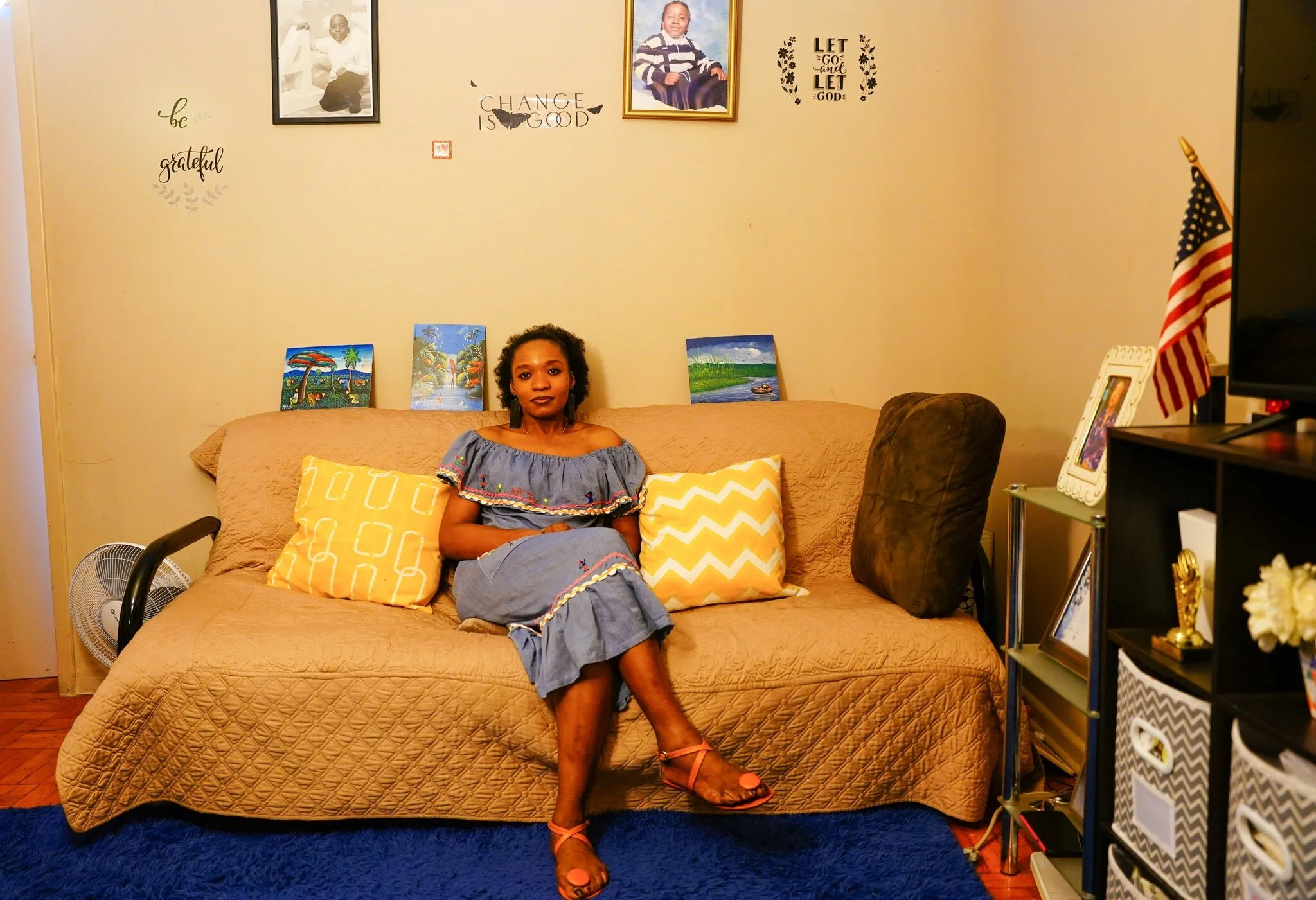Looking Back at 2021
Around the world, Magnum Foundation’s photographers are bearing witness to critical local stories, challenging dominant narratives, and developing innovative models of socially engaged storytelling. This year, Magnum Foundation supported over 65 photographers through grants, mentorship, and continued opportunities for our international network to collaborate and connect. Below are some highlights of the incredible breadth of activity and achievements of our creative community. Thank you to all of our partners, supporters, friends, grantees, and fellows for keeping us engaged, informed, and connected.
We published critical reporting by storytellers around the world
Building on our editorial coverage of the unprecedented events that defined 2020, in 2021 we continued to partner with media outlets to connect and amplify the local storytelling of our global network, ensuring that the critical stories of this time were covered through diverse and nuanced perspectives.
With the support of the Henry Luce Foundation, we published seven stories on the global impacts of Covid-19 in The Guardian, Time, and The British Journal of Photography. Three stories from US Dispatches—our initiative documenting the current social and economic landscape of the United States—were published in 2021 in The New York Times, Rolling Stone, and the Virginia Quarterly Review.
Natalie Keyssar spotlights incarcerated elders vulnerable to Covid-19 and their families in New York state.
Jared Ragland traces Alabama’s difficult past and tenuous present. “It’s a complicated place, simultaneously beautiful and horrifying—full of instances where the abject and beautiful mysteriously intersect.”
Johis Alarcón highlights a renewed sense of community as isolated populations hit hardest by school closures relaunch community schools in Ecuador.
“As a child growing up in Kashmir, I experienced many of the things that these kids were experiencing now. It was, in a way, not just telling their story, but also my story.” Showkat Nanda documents the hopes and dashed expectations of young people under lockdown during the pandemic in Kashmir.
“For me, [the act of] taking care is saying: I am not abandoning you.” Gabriella N. Báez profiles a trans collective reimagining family values in Puerto Rico.
“The best pictures are still in my mind. I saw really amazing pictures, but the people, they were looking at me with faces that said, ‘Please don’t do that’. Sometimes I’d see people in tears.” Leysis Quesada Vera describes life during the pandemic in Havana’s Los Sitios neighborhood.
We celebrated 20 years of the Inge Morath Award
In August, we celebrated the 20th anniversary of the Inge Morath Award, given each year to a woman or nonbinary photographer under the age of 30. We spent a week highlighting the work of past award recipients on our Instagram, and writer Sumeja Tulic reflected on Morath’s perseverance and enduring influence in a male-dominated industry in the British Journal of Photography. For more on Morath’s life and legacy, see Inge Morath: An Illustrated Biography by award-winning historian Linda Gordon, published in 2018 by Prestel and Magnum Foundation.
Alongside Magnum Photos and the Inge Morath Estate, we announced Fabiola Ferrero as the recipient of this year’s Inge Morath Award, and Taniya Sarkar as the finalist.
“I’m still in awe to look at the past recipients and see my name next to them. It is because of women like them that we now have a less painful path to walk. I’m grateful, I’m happy and I’m also feeling great responsibility to keep working and opening spaces for others.”
2021 finalist Taniya Sarkar’s project “Nothing Left to Call Home” highlights religious and patriarchal violence in West Bengal
We supported ten photographers from the Arab region to complete long-term projects, and eleven more embarked on new projects to be completed in 2022
Ten imagemakers in the Arab Documentary Photography Program, a joint mentorship initiative with the Arab Fund for Arts and Culture and the Prince Claus Fund, completed stereotype-defying projects from across the Arab region. Their stories join a collection of nearly 60 projects from the last six years of the program on a newly launched English-Arabic web gallery.
“I believe it’s a common human emotion to seek a definition of one’s identity, yet its complexity is often ignored, creating flattened labels and othering” Rehab Eldalil explores the notion of belonging and the interconnectedness of people and land as she connects with her own Bedouin ancestry in Sinai.
Maen Hammad highlights skateboarding as a form of resistance and escape for Palestinian youth. “When I moved back to Palestine in 2014, after living in the US for nineteen years, I brought my skateboard because I knew I would be a stranger. I needed the kid in me to remind myself that all is well while I tried to find home.”
Amina Kadous brings a personal lens to the fading history of Egyptian white cotton production. "Drawing on the legacies of my grandparents, their archives, and my own country’s eroding history, I try, through this work, to reconnect and recollect what is left of our own withering seeds of cotton."
Tamara Saade photographs male sunbathers on the disappearing public beaches of Beirut. “As the only woman there, I felt all eyes were on me. But I was the one fully dressed, with a camera, photographing those men lounging around in their speedos. Why would I be the one feeling uncomfortable?”
Myriam Boulos documents the multiple crises that hit Lebanon starting in October 2019. “Since then, everything has been emotionally and physically draining and confusing but also beautiful, sad, and awakening.”
“As a photographer I asked myself how can I avoid reproducing orientalist, Eden-like representations of the oasis? How can my work more truthfully express the reality of the deterioration that I observed?” Seif Kousmate illustrates the impacts of climate change he impacts of climate change on oases and their communities in Morocco.
In October, the eleven photographers in the 2021-2022 cohort began their fellowships, and were able to safely convene with their mentors in Jordan for our first in-person ADPP workshop since the onset of the pandemic.
We trained 11 Photography and Social Justice Fellows from around the world
The demolition of a fishing community in Egypt; the impact of economic decline and unemployment on a photographer’s family in India; a family affected by incarceration in Ecuador; racial injustice faced by ethnic minorities in Indonesia—these are some of the stories explored by this year’s fellows. The nine-month fellowship gave them the opportunity to develop new approaches to socially engaged documentary practice, with guidance from mentors Newsha Tavakolian, Sim Chi Yin, and Sohrab Hura, teachers Fred Ritchin and Mengwen Cao, and the Magnum Foundation team.
We exhibited Esther Ruth Mbabazi’s collaborative portraits at Photoville
Image courtesy of Gareth Smit
This fall at Photoville, a public art exhibition in Brooklyn Bridge Park, we shared Esther Ruth Mbabazi’s stunning portraits of women with disabilities. Produced in partnership with the American Jewish World Service, Esther collaborated with the women of Gulu Women with Disabilities Union in Northern Uganda to create portraits that celebrate individuality and personal expression, and counter typical portrayals of people living with disabilities. Read more about the project in Vogue.
We came together in support and celebration of our community
Amid the ongoing challenges of Covid-19, Magnum Foundation continued to be a resource and virtual gathering space for our global community of storytellers.
Since the early days of the pandemic, we have organized regular online meetups for our global network of past and present grantees and fellows. These community calls have been a valuable resource for continued learning, sharing of new work, and mutual support, and offer a direct line to our photographers to assess their needs in real-time so that we can better support them. We also embarked on inaugural partnerships with Acumen, the American Jewish World Service, and the Agroecology Fund to directly support 14 grantees with assignment opportunities to document and amplify the work of community leaders around the world. We celebrated the many accomplishments of our past grantees and fellows, whom we saw exhibit and publish projects they developed in our programs, gain support and recognition from various awards and grants, and continue their work as vital storytellers and leaders in their communities.
2018 Magnum Foundation Fund grantee Diana Markosian’s Santa Barbara exhibit opened at the International Center of Photography.
2015 Photography and Social Justice fellow Dieu-Nalio Chéry’s portraits of Haitian immigrants in New York appeared in The New York Times
Soumya Sankar Bose photographed Gayathri Vasudevan for one of our monthly LinkedIn profiles on community leaders with Acumen
We were also honored to welcome Magnum Foundation Fellow Tif Ng to work with our team and pursue her project exploring loss, rituals, and myth-making; as well interns Aidin Turganbekov and Irina Mengqi Wang who brought great insight and dedication to all aspects of our work.
We are grateful for your partnership as we envision a better future
As we look back on our accomplishments in a year of continued global challenges, we are grateful for the partnership, support, and dedication of our community.
Looking forward to the year ahead, we are excited to launch Counter Histories, an initiative focused on creatively reframing the past to engage with urgent questions of the present and future. Alongside an open call for photographers to receive $10,000 production grants and participate in project development workshops, we will convene a cohort of past fellows to work on this topic, offer additional project completion grants, and engage in several reporting partnerships—all through the lens of reframing histories and exploring the radical possibilities of alternative narratives.
Nada Harib weaves an intimate recollection of childhood and fear in Libya, and explores her hope that the country’s new chapter would reveal beauty.
Fred Ramos profiles families displaced by both the pandemic and climate change in El Salvador.
At this critical juncture, it is essential to support artists and thinkers who are demonstrating new ways to engage with our past and envision a different future. But we can't do it without you. Our community of visual storytellers—over 700 photographers in 84 countries—depends on your support.


